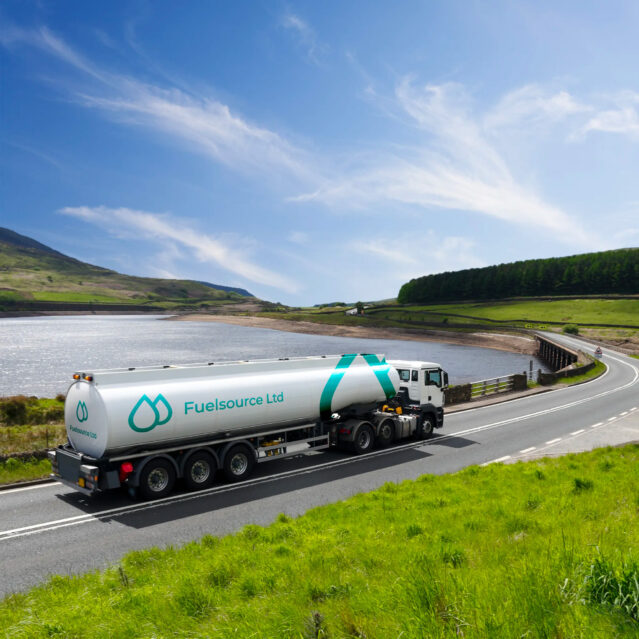
Apr 22, 2024
Exploring the Pros and Cons of HVO Fuel
Hydrotreated Vegetable Oil, also known as HVO, is an innovative synthetic fuel that sits as one of the most popular diesel alternatives on the market. But, like any fuel, there are advantages and disadvantages to be thought about. In this post, we’ll explore the pros and cons to help you decide if HVO is right for you and your business.
What is HVO Fuel?
This innovative fuel does the work of regular diesel with up to a 90% reduction of greenhouse emissions. Synthesised from vegetable oils and animal fats, this second-generation gas oil alternative is renewable while performing at the same level as diesel.
HVO is manufactured by hydrogenation and hydrocracking feedstocks such as rapeseed oil, soybean oil, waste cooking oil, and fat. Hydrogenation is the process of adding hydrogen atoms to unsaturated oils and fats, and hydrocracking is the process of converting larger hydrocarbon molecules into smaller ones.
The pros of HVO fuel
Environment
As HVO is derived from renewable feedstocks, its use results in lower greenhouse gas emissions on the fuel cycle compared to mineral diesel. As greenhouse gasses trap the sun’s heat in our atmosphere, using a fuel that reduces these emissions helps mitigate climate change and global warming. This is why HVO is known as a low-carbon fuel, and sometimes even carbon-neutral.
HVO is made using renewable sources. What are renewable sources? They are feedstocks that can be replenished through natural processes. The feedstocks used to create this fuel can be sustainably grown and cultivated again and again, unlike fossil fuel sources which are finite.
Using HVO fuel means businesses can reduce their fossil fuel reliance. By doing so, they’ll minimise their carbon footprint and contribute towards a transition into a more sustainable energy system.
Performance
With similar combustion characteristics to standard diesel fuel, HVO results in almost identical performance in vehicles and machinery. This means businesses can transition to HVO without compromising performance.
For vehicles, HVO fuel’s high cetane number ensures smooth engine operation and reliable starting in cold climates, enhancing driveability. Because of its consistent quality and low sulfur content, HVO promotes reduced engine deposits and cleaner combustion, which results in improved reliability.
Cost-Effective
Its cleaner combustions contribute to potential engine efficiency improvements. With the lack of aromatic compounds and sulfur in the fuel, the formation of carbon deposits and particulate matter are reduced. This optimises engine performance and lowers the amount of expensive engine maintenance and services required.
Because of HVO fuel’s more complete combustion and high oxygen content, it can potentially increase engine thermal efficiency. This leads to lower operating costs because of improved fuel consumption, a huge advantage for businesses.
HVO has enhanced lubricity properties, providing better protection for the components in engines. This includes fuel injectors, piston rings, pumps and more. The fuel reduces wear and minimises the risk of repairs and replacements, which is a great benefit to businesses.
Compatibility
As Hydrotreated Vegetable Oil fuel is compatible with all existing diesel engines and infrastructure, there is usually no need for modifications. Businesses will save money on expensive equipment adjustments and upgrades, further reducing operational costs and downtime for those transitioning to this more renewable fuel.
Compliance
HVO fuel is produced from renewable feedstocks like vegetable oils, animal fats and waste oils. This results in significantly lower greenhouse gas emissions compared to traditional diesel.
Today, there are many regulations and standards aimed at combating climate change and reducing air pollution. Thanks to HVO’s positive environmental qualities, it allows businesses to meet these standards and be compliant.
The cons of HVO Fuel
Supply chain and availability
Because of factors like infrastructure development, production capacity and market demand, there may be limited availability of HVO in certain regions. Sourcing the fuel can be difficult at times, trying to find quantities to meet demands and operational needs. This isn’t the kind of reliability people are looking for when working in fast-paced industries.
The distribution infrastructure for HVO fuel is slightly less developed than traditional fossil fuels. It’s constantly improving, but not yet at the same level. This can lead to logistical challenges, as well as longer lead times for fuel delivery.
Luckily, Fuelsource supplies HVO fuel. You can look to us for your HVO fuel delivery, and we’ll ensure it’s delivered efficiently and on time when needed.
Cost considerations
HVO fuel comes at a higher price point than fossil diesel. This is because it’s a premium liquid fuel. The price could also be subject to fluctuations, just like other biofuels. This price volatility can happen due to factors including feedstock availability, market demand, and production costs.
Compatibility concerns
While approved by a vast number of original equipment manufacturers, some sectors still distrust HVO’s compatibility with their engines and equipment. This is largely due to the fuel still being relatively new.
Food security
There are apprehensions regarding the competition for land between crops used for biofuel production and those grown for food consumption. Balancing the cultivation of both types of crops may lead to deforestation, a practice opposed to the principles of eco-friendly biofuel production.
Is HVO fuel right for your business?
Businesses need to weigh the pros and cons of HVO fuel before they can decide if it’s right for them. Anyone looking to transition to this renewable energy source should speak to the experts first, like our team at Fuelsource.
With years of industry experience behind us, we can help you understand if HVO is the right step for you. We believe its pros outweigh the cons, but we can assist in working out if the same applies to your operations.
Give us a call on 0207 846 0255 and speak to one of our team today to learn more about HVO. We will source and deliver it promptly, never leaving you without. Our emergency fuel delivery service can also bring HVO fuel to you when you need it most.



